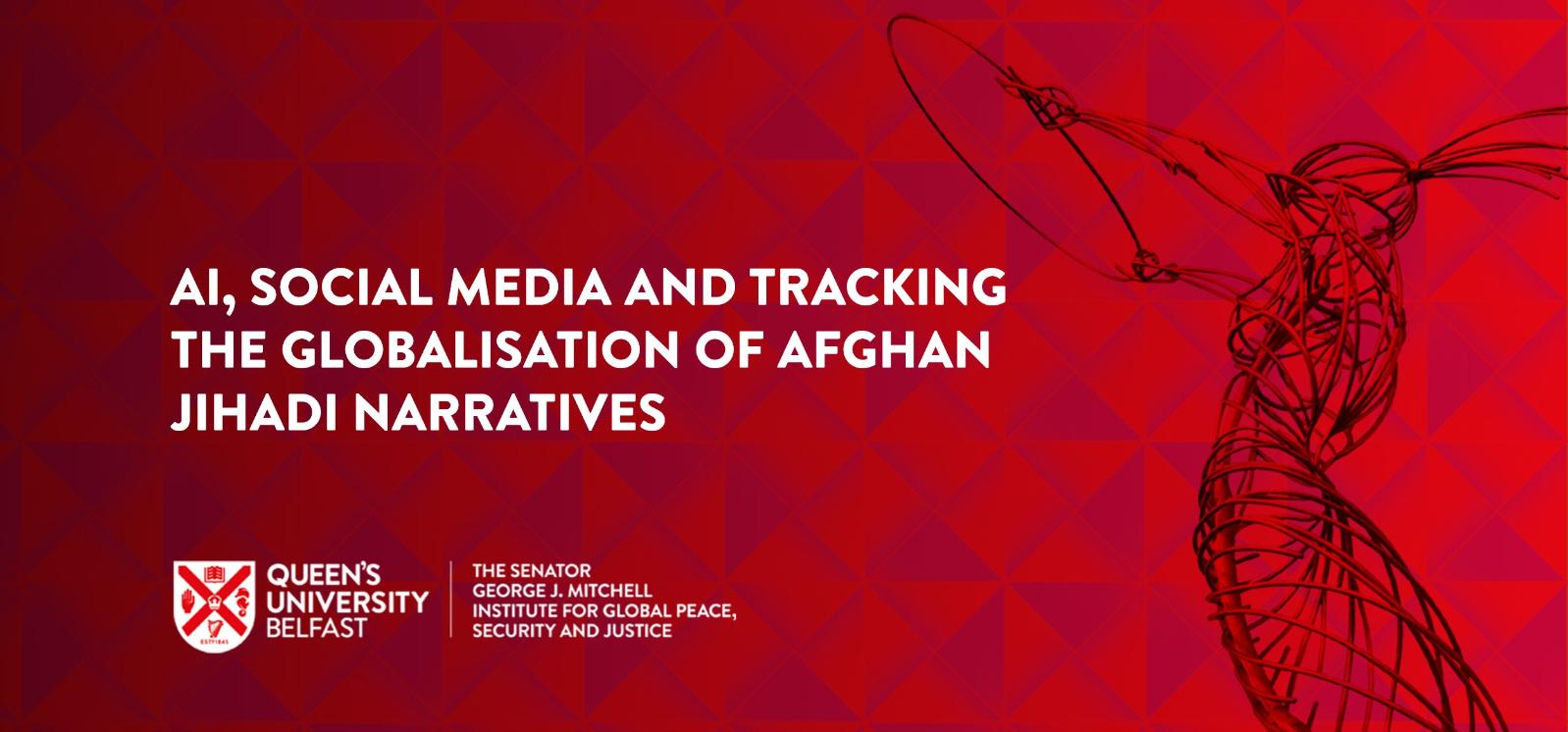AI, social media and tracking the globalisation of Afghan jihadi narratives

Mitchell Institute Visiting Scholar Dr Stephen Herron and Professorial Research Fellow, Professor Michael Semple, hosted a hybrid Seminar on AI, social media and tracking the globalisation of Afghan jihadi narratives at the Mitchell Institute and online, on 7 April 2025. This inter-disciplinary event brought together academics, practitioners, programmers and officials including those from the Home Office, United Nations, Armed Forces, Afghanistan experts and technical specialists.
This event built on work done by researchers working with Professor Semple to apply AI to analysis of the Taliban and other Afghan conflict parties’ social media output as well as work carried out by Dr Herron who is exploring better research methods to assist in the analysis of online extremism. A key justification for the US signing a deal with the Taliban in 2020 was the assumption that Taliban ambitions are restricted to Afghanistan (“Islam in one country”). The early analysis of the big data set of Afghan social media content confirms that much of the Taliban’s prodigious media output is devoted to claiming legitimacy for their state-building narrative within Afghanistan. But, in parallel, they have developed more globalised messages in which they, glorify armed jihad and claim to offer the ideal model of Islamic governance.
The Seminar illustrated just how dynamic the social media landscape is. Western countries face challenges of largescale (and AI-generated) dis-, mis- and mal-information. There are threats from malign state actors as well as both Islamist and right-wing extremism. There is even cross-over between the latter two, with propagation of toxic masculinity emerging as a case in point. Experts from the New York-based UN Sanctions team reported a trend in European countries towards online radicalisation of young men in their late teens. But their old caseload of jihadi fighters, veterans of the conflicts in the Middle East and South Asia are still active and have an online presence. The discussion of latest UK developments in extremism highlighted how in-person events arranged by activist organisations for potential recruits remain important, complementing online radicalisation.
Speakers presented on a range of areas including latest developments both online and on the ground in Afghanistan, current and future trends in online extremism, developments in analysing misinformation and disinformation as well as discussion on the complexities around determining what can be described as misinformation or disinformation.
The main takeaway from the Seminar was that the speed of evolution of the online space is leaving all actors struggling to keep up. Success for regulators, security officials, big tech, researchers and malign actors alike depends on seizing the opportunities presented by AI and updating their strategies to respond to emergent threats.
The team are grateful to the Leading Impact Fund at QUB for their support in funding the event.
